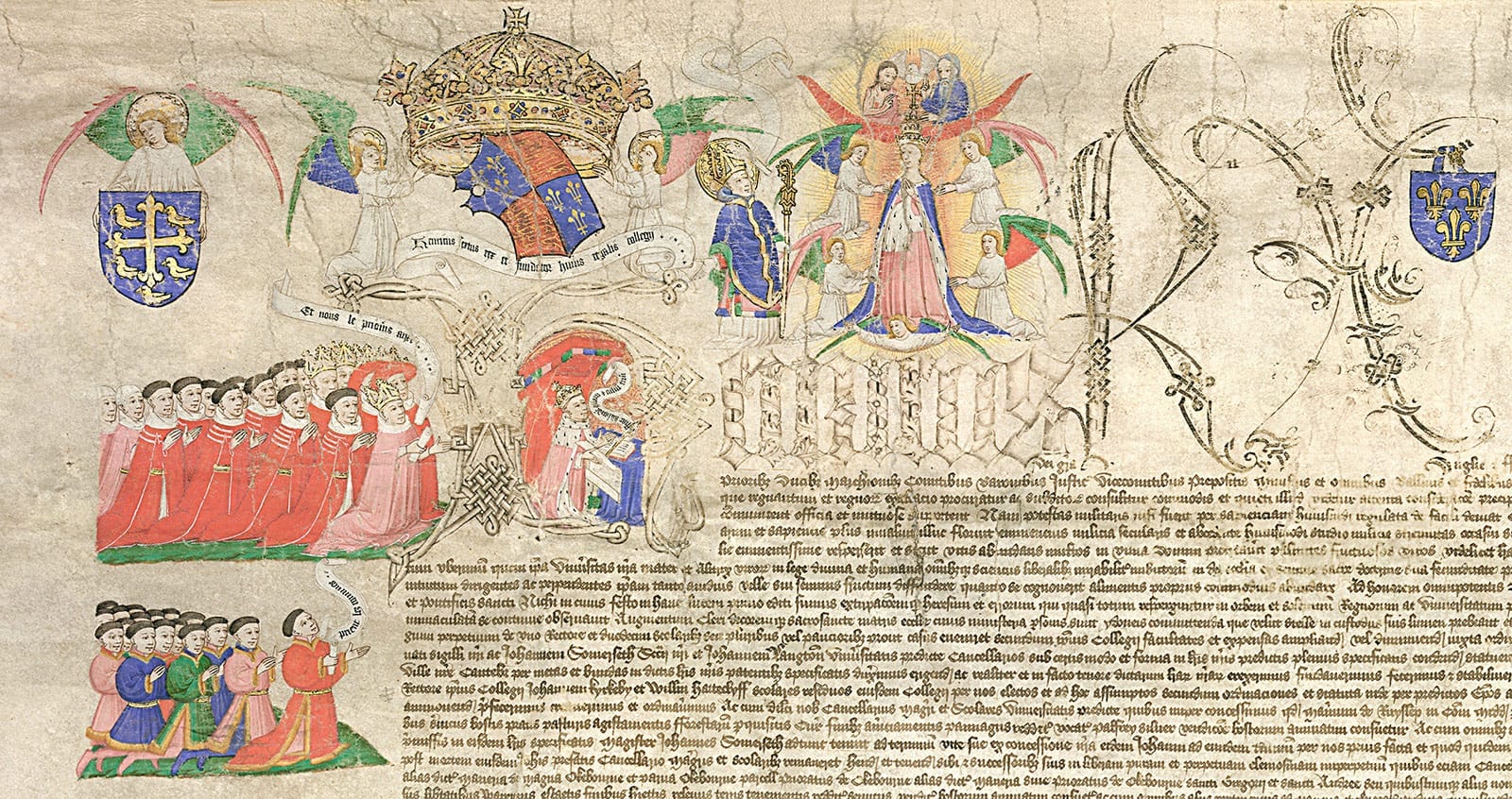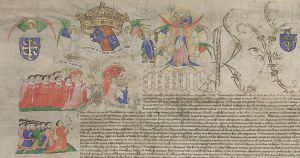Yesterday, the feast day of St Nicholas, was the 600th anniversary of the birth at Windsor Castle of the future King Henry VI.

King Henry VI
Image: schoolshistory. org.uk
The only son of the marriage of King Henry V and Queen Catherine he was born heir to both the thrones of England and Ireland and to that of France under the terms of the Treaty of Troyes, which was itself the background to his parents’ marriage the preceding year.
Within a year he had succeeded his father as King of England and his grandfather as King of France. The high hopes, doubtless not unaccompanied by fears which surrounded those events were the prelude to a reign that was to end in the loss of France, illness, civil war in England and the King’s deposition, flight, capture, imprisonment. readeption and finally murder. This was accompanied by the death of his only son in battle and there or on the scaffold of so many of his supporters.
Alongside that tale of woe are the foundations of Eton, Kings in Cambridge and, with Archbishop Chichele, of All Souls in Oxford. There is also the fact that the country as a whole appears prosperous and creative in such a time of political and military upheaval - the actions of the political elite appear not to have hampered that solid prosperity of late medieval England.
As a man King Henry appears genuinely devout, and was indeed, to be esteemed in the decades following his death as a candidate fir sainthood. A gentle man he sought to reconcile his feuding subjects and indeed realms by peaceful persuasion and pious intentions. That said he was also willing to act decisively and, for all his recorded delight in quiet scholarly interests, was conscious of the dignity and duties of his royal office. This has not, I think, attracted as much recognition as it ought amongst historians.
Most people’s image if him derives, as with the other monarchs if the fifteenth century from Shakespeare. As with all those images there are the simplifications necessary to the dramatist, who is telling a story, and not necessarily the story about them. Shakespeare’s character King Henry Vi lacks the resolve he did show and the concern for his foundations - he is pious and peaceful, and ineffectual, whereas at times the real King was perhaps over assertive and very conscious of his position. A threat to that would be met by a firm response, if not perhaps directly but certainly in his name.
The story of King Henry VI is in many ways a terrible, personal one as well as a national tragedy. If in his last years he perhaps found personal serenity in captivity, his seeming failure found a strange response both in his cult as a saint-king beloved of his humble subjects and in the vindication of his line by his relative’s victory at Bosworth. What he might have thought of the actions of the successors of King Henry VII is another matter.
I am currently reading inter alia Lauren Johnson’s recent biography of him, The Shafow King: The Life and Death of Henry VI. In this book she seems to depict him as a complete human being rather than as a semi-caricature as in the past or as simply a failed ruler which might be the view of modern academics. She draws well upon surviving contemporary material to recreate for her readers the court and country within which the King lived out his earthly pilgrimage. As I read it I sense more than ever that the problems which confronted the young King were ones which would have overwhelmed many men, and indeed he would have needed to be his formidable father to have solved them. That he was not was a large part of his tragedy. That he was a man of principle in a time of vicious conflict stands to his credit and seems to have been respected by his support, even by his enemies, and by his people.
As a kind of anticipated twentieth birthday present for himself and a gift to learning in February 1441 King Henry founded the College of Our Lady and St Nicholas - King’s College - Cambridge.
King Henry VI together with the Lords and Commons and with St Nicholas at top right
Charter upon Act of Parliament to King’s College Cambridge March 16th 1445-6
Image: Media Storehouse
There is a more detailed description of the charter and more illustrations in an article from King’s College at Illuminating the Foundation of King’s College

The illuminated section of the charter
Image: kcs.cambs.sch.uk
The arms of King Henry VI together with his banner
Image:1henry6.wikidot.com
This evening at St George’s Chapel at Windsor there had been a special Evensong to commemorate the King’s birth with Etonians laying white lilies and red roses on his tomb.
King Henry VI Pray for us




No comments:
Post a Comment